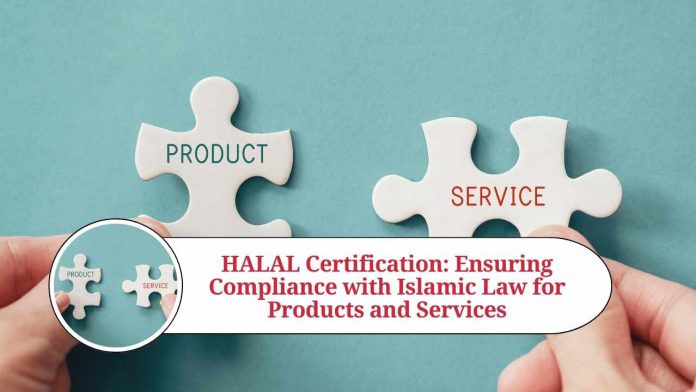Introduction of HALAL Certification
In today’s global marketplace, many consumers are looking for products that meet their specific cultural or religious dietary requirements. For Muslims, one of the most important considerations when purchasing food and other products is whether they are HALAL or not. HALAL is an Arabic word that means “permissible” or “lawful,” and it refers to products that are allowed under Islamic law. HALAL certification is a process that ensures that products meet the requirements for HALAL consumption.
The HALAL certification process involves a rigorous review of a product’s ingredients and manufacturing processes. The certification process is conducted by HALAL certification organizations that have been authorized by Islamic authorities. These organizations have a team of experts who inspect the products, review the ingredients, and ensure that they meet the requirements of Islamic law.
The HALAL certification process typically involves several steps. First, the manufacturer or producer of the product applies for certification. The certification organization then reviews the application and, if necessary, requests additional information about the product and its ingredients. Once the organization has all the necessary information, they will inspect the production facility to ensure that the product is being manufactured according to HALAL requirements.
The inspection process includes a review of the ingredients used in the product, the manufacturing process, and any potential sources of contamination. The certification organization will also examine the packaging and labeling of the product to ensure that it meets HALAL requirements.
If the product passes all of these checks, the certification organization will issue a HALAL certificate that allows the product to be marketed as HALAL. The certificate typically includes a HALAL logo or symbol that identifies the product as HALAL-certified.
The HALAL certification process is important for both producers and consumers. For producers, HALAL certification allows them to access a growing market of Muslim consumers who are looking for products that meet their dietary requirements. For consumers, HALAL certification provides assurance that the products they are purchasing are HALAL and meet the requirements of Islamic law.
In conclusion
HALAL certification is a rigorous process that ensures that products meet the requirements of Islamic law. The certification process involves a review of ingredients, manufacturing processes, and packaging and labeling. HALAL certification is important for both producers and consumers, as it allows producers to access a growing market of Muslim consumers, while providing assurance to consumers that the products they are purchasing are HALAL-certified.
Read more useful content:
- Occupancy Certificate Online
- ETA Certificate
- Model Approval Certificates
- Legal Metrology Certificate
Frequently Asked Questions (FAQs)
Q: What does HALAL mean?
A: HALAL is an Arabic word that means “permissible” or “lawful.” In the context of food and other products, HALAL refers to items that are allowed under Islamic law.
Q: What is HALAL certification?
A: HALAL certification is a process that ensures that products meet the requirements for HALAL consumption. The certification process involves a rigorous review of a product’s ingredients and manufacturing processes to ensure that they are HALAL-compliant.
Q: Who can apply for HALAL certification?
A: Any manufacturer or producer of food or other products can apply for HALAL certification. However, the certification process is typically of most interest to companies that want to market their products to Muslim consumers.
Q: What are the benefits of HALAL certification for producers?
A: HALAL certification allows producers to access a growing market of Muslim consumers who are looking for products that meet their dietary requirements. It also provides assurance to consumers that the products they are purchasing are HALAL-certified.
Q: What are the benefits of HALAL certification for consumers?
A: HALAL certification provides assurance to consumers that the products they are purchasing are HALAL-compliant and meet the requirements of Islamic law. This is particularly important for Muslims who follow strict dietary guidelines.
Q: What types of products can be HALAL-certified?
A: Any product that is consumed by humans can potentially be HALAL-certified. This includes food, beverages, pharmaceuticals, and personal care products.
Q: How is HALAL certification granted?
A: HALAL certification is granted by certification organizations that have been authorized by Islamic authorities. These organizations have a team of experts who inspect the products, review the ingredients, and ensure that they meet the requirements of Islamic law.
Q: Can a product be certified HALAL by multiple organizations?
A: Yes, a product can be certified HALAL by multiple organizations. However, it is important for consumers to verify that the organizations issuing the certifications are reputable and have been authorized by Islamic authorities.
Q: Is HALAL certification mandatory for all products sold in Muslim-majority countries?
A: No, HALAL certification is not mandatory for all products sold in Muslim-majority countries. However, many consumers in these countries prefer to purchase products that are HALAL-certified, so it can be advantageous for companies to seek certification for their products.
Q: How can consumers identify HALAL-certified products?
A: HALAL-certified products typically bear a HALAL logo or symbol on their packaging or labeling. Consumers can also verify the certification status of products by checking the certification organization’s website or contacting the organization directly.




















